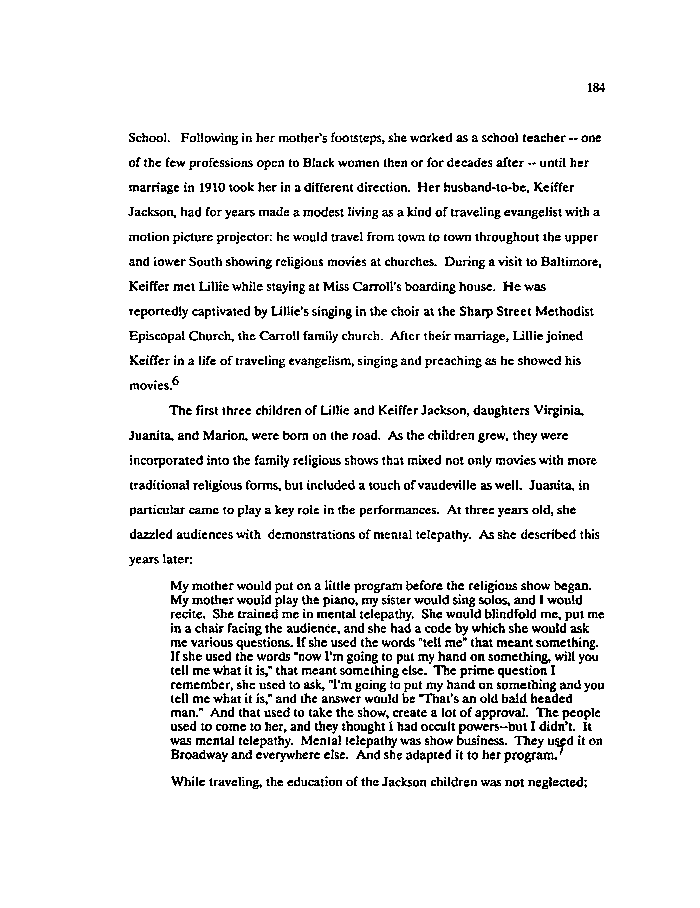|
184
School. Following in her mother's footsteps, she worked as a school teacher — one
of the few professions open to Black women then or for decades after — until her
marriage in 1910 took her in a different direction. Her husband-to-be, Keiffer
Jackson, had for years made a modest living as a kind of traveling evangelist with a
motion picture projector: he would travel from town to town throughout the upper
and lower South showing religious movies at churches. During a visit to Baltimore,
Keiffer met Lillie while staying at Miss Carroll's boarding house. He was
reportedly captivated by Lillie's singing in the choir at the Sharp Street Methodist
Episcopal Church, the Carroll family church. After their marriage, Lillie joined
Keiffer in a life of traveling evangelism, singing and preaching as he showed his
movies.
The first three children of Lillie and Keiffer Jackson, daughters Virginia,
Juanita, and Marion, were born on the road. As the children grew, they were
incorporated into the family religious shows that mixed not only movies with more
traditional religious forms, but included a touch of vaudeville as well. Juanita, in
particular came to play a key role in the performances. At three years old, she
dazzled audiences with demonstrations of mental telepathy. As she described this
years later:
My mother would put on a little program before the religious show began.
My mother would play the piano, my sister would sing solos, and I would
recite. She trained me in mental telepathy. She would blindfold me, put me
in a chair facing the audience, and she had a code by which she would ask
me various questions. If she used the words "tell me" that meant something.
If she used the words "now I'm going to put my hand on something, will you
tell me what it is," that meant something else. The prime question I
remember, she used to ask, "I'm going to put my hand on something and you
tell me what it is," and the answer would be That's an old bald headed
man." And that used to take the show, create a lot of approval. The people
used to come to her, and they thought i had occult powers-but I didn't. It
was mental telepathy. Mental telepathy was show business. They u$ed it on
Broadway and everywhere else. And she adapted it to her program/
While traveling, the education of the Jackson children was not neglected;
|

